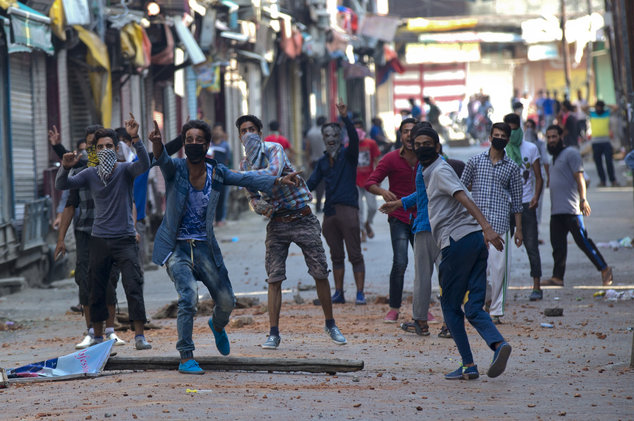
As the dust settles on Jammu and Kashmir’s 2024 Assembly elections, exit polls across the board are signaling a significant shift in the region’s political dynamics. The Congress-National Conference (NC) alliance is leading the race, leaving the Bharatiya Janata Party (BJP) trailing in second place. With 90 seats up for grabs and 46 needed for a majority, the Congress-NC coalition is emerging as the favorite to form the next government. This election is crucial, as it marks the first Assembly election in the region since the abrogation of Article 370 in 2019. The BJP, despite its efforts to reshape the region’s political landscape, seems poised to face a serious setback.
The stakes were particularly high for the BJP in this election. Since the revocation of Jammu and Kashmir’s special status, the party has sought to consolidate its power in the region, presenting itself as the architect of change and development. The BJP’s messaging has centered on national integration, security, and economic progress, all framed within the broader narrative of the party’s efforts to integrate Jammu and Kashmir more closely with the rest of India. However, while this strategy appealed to some voters, particularly in Jammu, it has failed to generate the widespread support needed to secure a majority across the region.
Exit polls, including those conducted by India Today-CVoter, indicate that the BJP may secure between 27-32 seats, falling short of the majority required to form a government on its own. This is a notable drop from the BJP’s earlier ambitions of a sweeping victory that would enable it to establish complete political control over Jammu and Kashmir. The Congress-NC alliance, on the other hand, is projected to win between 40-48 seats, suggesting that the coalition is well-positioned to form the next government. These numbers are a clear indication that the BJP’s strategy in Jammu and Kashmir has not resonated as strongly as the party had hoped.
The Congress-NC alliance was a strategic move that paid off. Recognizing that a divided opposition would only benefit the BJP, the Congress and NC agreed to join forces and contest the elections together, ensuring that anti-BJP votes were consolidated. This tactical collaboration has proven to be a masterstroke, as the alliance is now leading in the polls and is on the verge of securing a decisive victory.
One of the key factors behind the alliance’s success has been its ability to focus on local issues. While the BJP emphasized national security and the benefits of economic development, the Congress-NC alliance concentrated on the specific concerns of the people in Jammu and Kashmir. Issues such as unemployment, political disenfranchisement, and the restoration of political autonomy resonated deeply with the electorate. The alliance’s promise to restore political rights and autonomy within the constitutional framework has struck a chord with voters, many of whom feel alienated by the BJP’s policies.
In addition to the Congress-NC alliance and the BJP, other regional players such as Mehbooba Mufti’s People’s Democratic Party (PDP) and Ghulam Nabi Azad’s Democratic Progressive Azad Party (DPAP) are also part of the electoral landscape. However, their influence appears to be more limited in this election. The PDP, which was once a dominant force in the region, is projected to win between 6-12 seats, a significant decline from its earlier years of political prominence. Similarly, the DPAP, a relatively new political entity, is expected to secure only a few seats.
Despite the Congress-NC alliance’s lead in the exit polls, the possibility of a hung assembly cannot be entirely ruled out. Multiple exit polls, including those from RepublicTV-Matrize and Dainik Bhaskar, suggest that both the BJP and the Congress-NC alliance may fall short of a clear majority. However, even in such a scenario, the Congress-NC alliance appears to have more pathways to form a government, given its higher seat count and potential support from smaller regional parties.
All signs point to the BJP falling short of its ambition to govern Jammu and Kashmir. Despite its efforts to project itself as the party of development and national unity, the BJP has been unable to overcome the strong regional sentiments that favor local parties like the Congress and NC. The Congress-NC alliance has managed to capture the political imagination of the region, offering a vision of governance that is more attuned to local concerns and aspirations. Whether or not a hung assembly emerges, the BJP is not in a position of strength, and its prospects for forming a government look increasingly bleak. For the people of Jammu and Kashmir, the 2024 elections are poised to bring significant political change, but for the BJP, this change may not be in their favor. The Congress-NC alliance has emerged as the leading political force, and unless the final results hold unexpected surprises, the BJP will be left on the sidelines in this crucial election.
